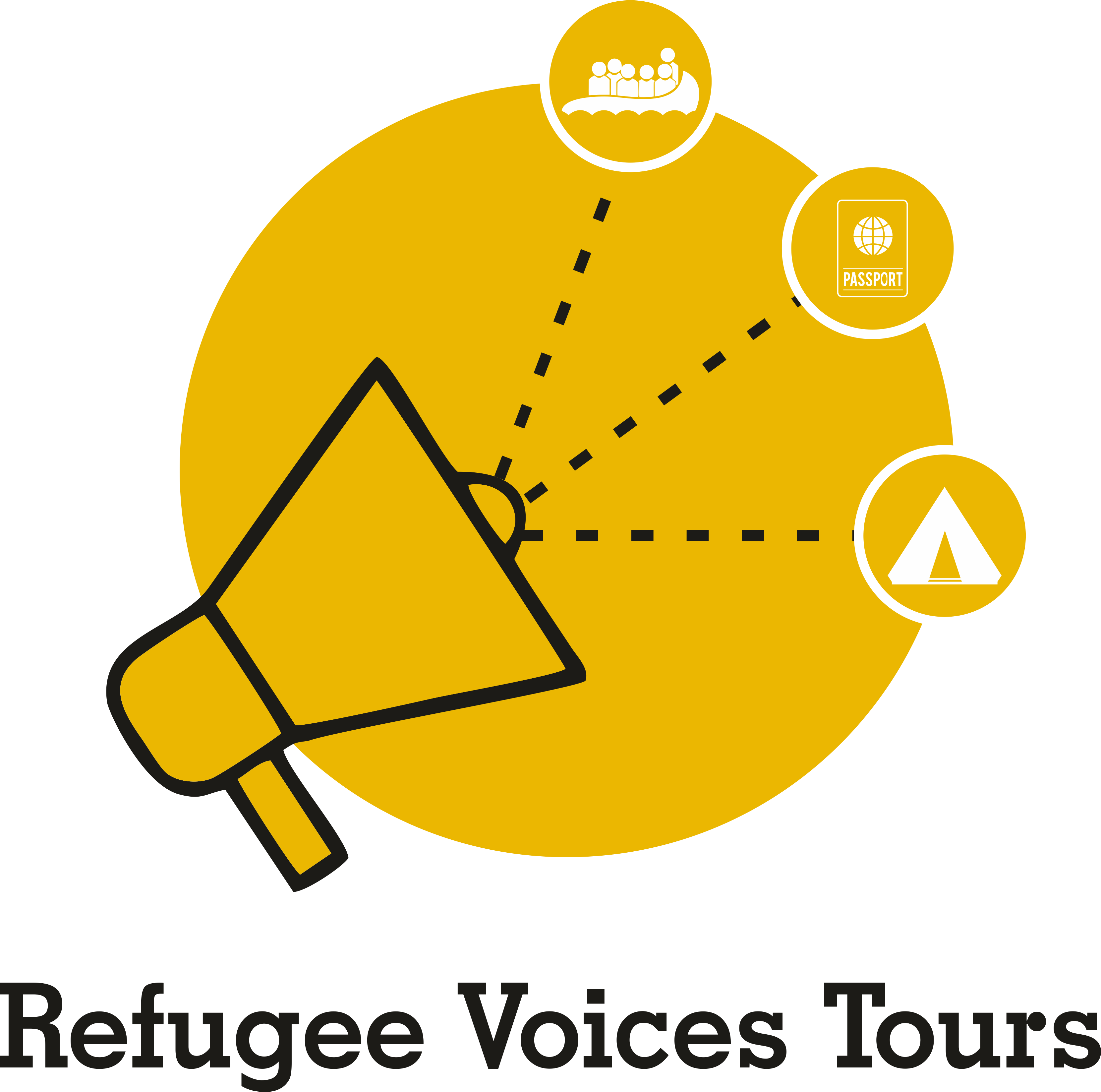
It was cold. That was the first thing I realised as I stepped into the womb-like Christmas market tent, that had been evidently giving comfort to freezing tourists throughout the day. I found a spot to sit two people – my mother sitting opposite me. Both of us instantly ordered the warmest alcoholic beverage offered on the menu.
“Boy, that was cold” my mother said, stating what my raw red hands and numb toes also knew to be true.
What had been surprising though was Mohamad. He had been wearing only the most basic clothing to keep out the biting Berlin winter cold; a faux leather jacket with a fake hood protruding from the neck and resting on his scarf-less shoulders, with seemingly not much underneath. His lower half was clothed in jeans and shoes that would not have seemed out of place in +20 degrees weather. Mohamad had been our guide.
He had stood in front our group for just over 3 hours on one of the first Berlin winter days of 2016. During that time we had snaked throughout the city centre stopping at the former Air Ministry (1936), the Topography of Terror, Checkpoint Charlie and the Gendarmenmarkt. At these locations Mohamad had expertly crafted the story of the conflict in Syria onto the pot-marked past of each of these major Berlin landmarks. Each had distinct themes emanating from his prose to clarify, colour and give perspective on the history of his own nation.
Mohamad, you see, is from Syria. He managed to come to Germany two years ago via a very dangerous boat route from Libya over to the south of Italy and then overland to Germany. His English is impeccable, and laced with the poetry found when someone who speaks Arabic as a first language tries to find comparable metaphors, similes and adjectives in my own language. The commentary was catered towards a crowd with little, no or lots of understanding about the Syrian conflict.
He spoke with tragedy-laced precision about the Hama Massacre during February of 1982, when Bashar al Assad’s father had been in power, that left tens of thousands dead or imprisoned (the true number is still unknown) and a country terrified to disobey the Assad Regime. He talked at the former site of the Gestapo Headquarters about the penetration of Syrian special forces and secret service agencies into every facet of life. He talked of the now lost hope that had ignited across Syria in the first months of protest back in 2011 and the horrific destruction it had resulted in. He talked of his own escape (thankfully with some members of his family). He talked of borders and the incredibly difficult topic of the situation of refugees in Europe. Standing in front of the French Calvinist Church in Berlin’s Gendarmenmarkt, he talked of Berlin’s own history of taking in refugees (1685 edict of Potsdam where 20,000 French Huguenots came in 15 years time). He talked of the gratitude that he felt towards Berlin and Germany that his own story could be told now on a cold winter’s day on the streets of Berlin. And then he stopped.
Sitting in that snug, warm and cosy Christmas market tent, my mother and I quietly sipped our mugs of hot alcohol and discussed what we had just heard. We talked about how intelligent, graceful and modest Mohamad had been throughout the tour – no question was dealt with as if it were silly or obvious. He instead approached every query with the intellectual clarity of a well worn professor gently guiding his class through a tricky subject area. We talked about how much we had learnt and how ignorant we both were on the details of the conflict. And then, as if from nowhere, interrupting the protocols of conversation my mother blurted,
“He changed my mind. I had no idea about any of it really. He changed my mind and now I feel like I can go into conversations about the conflict and the refugee crisis knowing so much more, with so much more empathy. He changed my mind.”
And with that she had mirrored Mohamad’s modesty and summed up the essence of the tour. My own mind racing through news articles I had read, documentaries I had watched and conversations I had had about the conflict was instantly quietened. Suddenly I realised that the greatest gift Mohamad gives to those privileged enough to take his tour is to humanise the news story and offer this incredibly literate, intelligent, gentle and modest face to an otherwise indescribably disturbing conflict.
Ysanne Choksey is a British tour guide, blogger and podcaster living in Berlin, you can follow her blog here: http://monumentmusing.blogspot.de/ .
